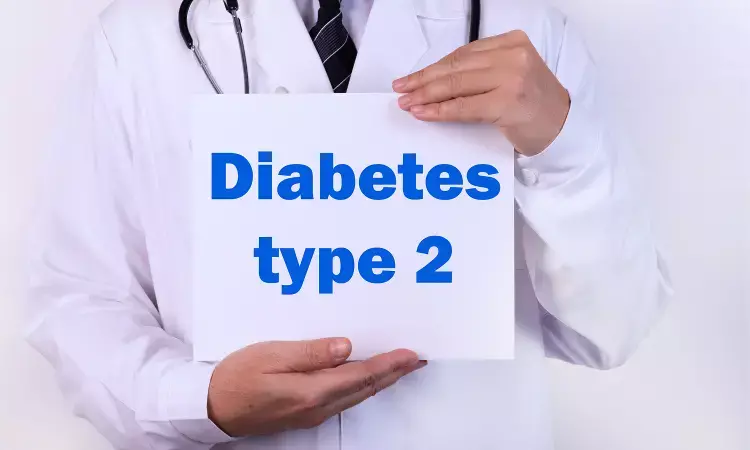- Home
- Medical news & Guidelines
- Anesthesiology
- Cardiology and CTVS
- Critical Care
- Dentistry
- Dermatology
- Diabetes and Endocrinology
- ENT
- Gastroenterology
- Medicine
- Nephrology
- Neurology
- Obstretics-Gynaecology
- Oncology
- Ophthalmology
- Orthopaedics
- Pediatrics-Neonatology
- Psychiatry
- Pulmonology
- Radiology
- Surgery
- Urology
- Laboratory Medicine
- Diet
- Nursing
- Paramedical
- Physiotherapy
- Health news
- Fact Check
- Bone Health Fact Check
- Brain Health Fact Check
- Cancer Related Fact Check
- Child Care Fact Check
- Dental and oral health fact check
- Diabetes and metabolic health fact check
- Diet and Nutrition Fact Check
- Eye and ENT Care Fact Check
- Fitness fact check
- Gut health fact check
- Heart health fact check
- Kidney health fact check
- Medical education fact check
- Men's health fact check
- Respiratory fact check
- Skin and hair care fact check
- Vaccine and Immunization fact check
- Women's health fact check
- AYUSH
- State News
- Andaman and Nicobar Islands
- Andhra Pradesh
- Arunachal Pradesh
- Assam
- Bihar
- Chandigarh
- Chattisgarh
- Dadra and Nagar Haveli
- Daman and Diu
- Delhi
- Goa
- Gujarat
- Haryana
- Himachal Pradesh
- Jammu & Kashmir
- Jharkhand
- Karnataka
- Kerala
- Ladakh
- Lakshadweep
- Madhya Pradesh
- Maharashtra
- Manipur
- Meghalaya
- Mizoram
- Nagaland
- Odisha
- Puducherry
- Punjab
- Rajasthan
- Sikkim
- Tamil Nadu
- Telangana
- Tripura
- Uttar Pradesh
- Uttrakhand
- West Bengal
- Medical Education
- Industry
Testosterone improves sexual function, verbal recall and QoL in men with uncontrolled diabetes

Testosterone replacement therapy improved sexual symptoms, libido, symptom severity, delayed verbal recall and overall quality of life among people with poorly controlled type 2 diabetes and hypogonadism, according to research being presented Monday at ENDO 2022, the Endocrine Society's annual meeting in Atlanta, Ga.
This is the first randomized controlled trial to show significant improvements from testosterone replacement therapy, according to lead author, Preethi Mohan Rao, M.B.B.S., M.R.C.P., C.C.S.T., M.D., and Prof. Hugh Jones, consultants in diabetes and endocrinology at the Barnsley Hospital NHS Foundation Trust in Barnsley, U.K., and University of Sheffield in Sheffield, U.K.
"The findings are welcome news to men with diabetes and hypogonadism, since they often have a poor quality of life," Rao said.
Rao and colleagues conducted a randomized, double-blind, placebo-controlled add-on trial of intramuscular testosterone undecanoate (Nebido®, TRT) administered every 12 weeks in 65 men (mean age 59 years) with poorly-controlled diabetes and hypogonadism. In Phase 1, patients were randomly assigned to either treatment or placebo for 6 months of TRT. Phase 2 consisted of an open-label format for 6 months and those administered placebos were moved into the treatment group. Patients in the treatment group continued treatment.
In Phase 1, the mean total Aging Male Symptoms (AMS) score, which is a quality of life assessment tool in men, significantly decreased from a baseline of 48.34±13.13 to 37.72±12.25 at 6 months after TRT compared with placebo (p<0.05). Those who were administered TRT were more likely to move on from severe symptoms to low, mild, or moderate symptoms compared to those in the placebo group (46% vs. 28%, p=0.0024).
However, there were no significant findings from SF-36 scores, MMSE scores, BDHQ, NERI or IIEF-5 scores or its domains at baseline and after 6 months of TRT.
In Phase 2, the AMS total score (p=001) and all its subscales (physical p=0.01), psychological (p=0.026), and sexual (p<0.001), with improvement in libido (p<0.001) showed significant improvements. Sexual wellbeing (p=0.002) and emotional wellbeing (p=0.011) were also significantly improved (p=0.07). In addition, QoL scores revealed better physical health (p=0.019) and health change (p=0.019). Statistically significant changes were noted for delayed verbal recall (an early sign of dementia) in this phase, as well (p=0.0004).
"These findings will also form the evidence basis for our general practitioners and endocrinologists to proactively ask their diabetes patients about the symptoms at their regular health visits and investigate and diagnose hypogonadism appropriately and treat them with testosterone where indicated," Rao said. "Our trial showed that the treatment is very safe when accurately monitored."
Dr Kamal Kant Kohli-MBBS, DTCD- a chest specialist with more than 30 years of practice and a flair for writing clinical articles, Dr Kamal Kant Kohli joined Medical Dialogues as a Chief Editor of Medical News. Besides writing articles, as an editor, he proofreads and verifies all the medical content published on Medical Dialogues including those coming from journals, studies,medical conferences,guidelines etc. Email: drkohli@medicaldialogues.in. Contact no. 011-43720751


